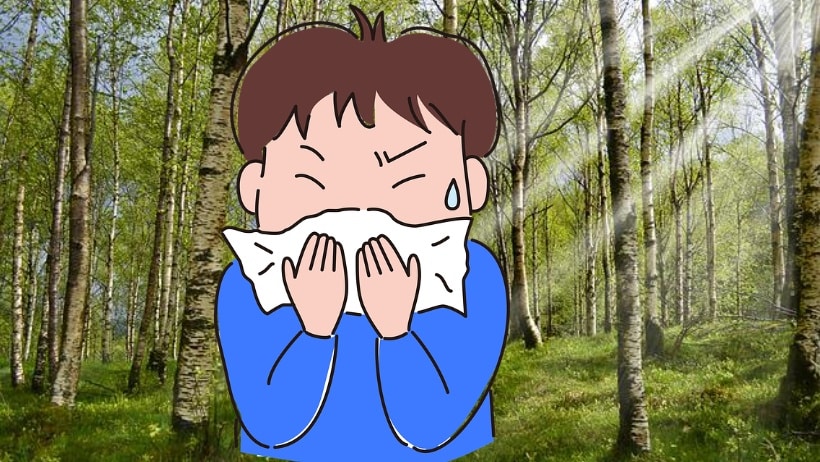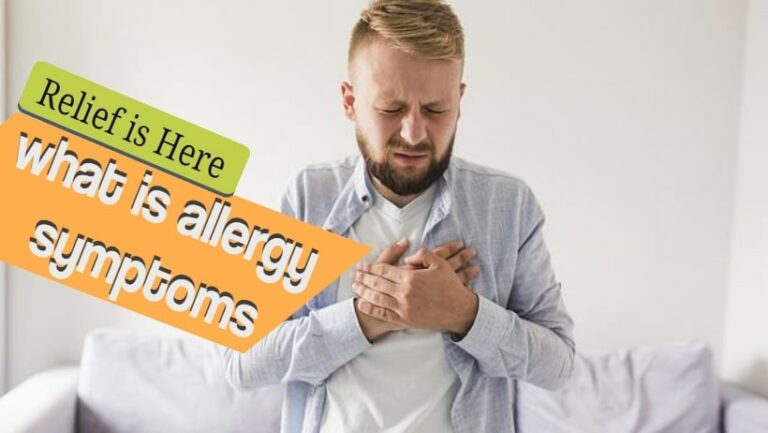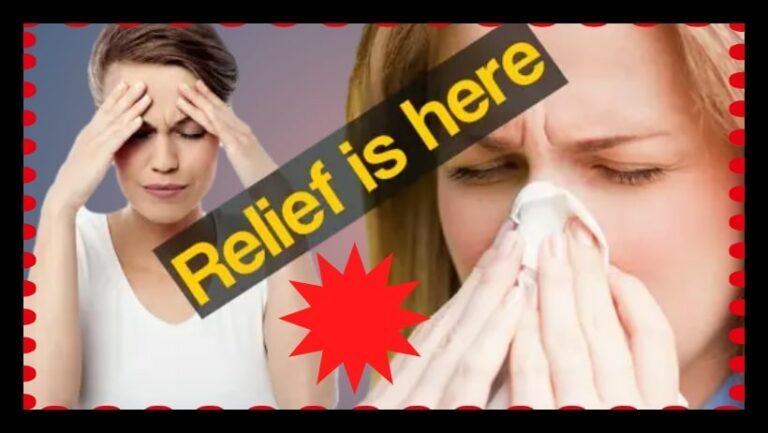The Conversation – Seasonal Allergies in Adults: While we are still in summer, the months are going fast, seasonal allergies in adults are common, the pollen count becomes high, and everyone seems to be sneezing and sniffling. But there is always hope! If you find yourself among the millions of people who suffer from seasonal allergies, you know how miserable they can make you feel.
If you visit your local drugstore’s shelves, several effective treatments are available that can help you get relief from your seasonal allergy with minimal discomfort. This blog post will explore some of the most popular treatments for seasonal allergies.
Symptoms of Seasonal Allergies in Adults
If you suffer from seasonal allergies, also known as hay fever, you’re not alone. Symptoms of seasonal allergies can include sneezing, runny nose, itchy eyes, and congestion. The United States is one country where it is estimated that around a million people are affected by this condition.
Seasonal allergies can make it difficult to concentrate at work or school and can even lead to missed days of work or school. While some of the symptoms may seem minor, they can significantly impact your quality of life. If you suffer from chronic seasonal allergies, there is a solution that will aid you in relieving your symptoms.
Keep reading as you will learn some of the most common symptoms of seasonal allergies that affect adults and the steps you can take to prevent and treat those symptoms of your allergies.
Causes of Seasonal Allergies in Adults
If you’re an adult who suffers from seasonal allergies, you’re not alone. In fact, according to the Asthma and Allergy Foundation of America, about a million adults in the United States have seasonal allergies that range from mild to severe and include sneezing, stuffy or runny nose, itchy eyes, coughing, and wheezing.
There are times when you will be unsure that the symptoms you are having are due to allergies or a cold. There are key differences between an allergy and a cold. Seasonal allergies are usually more consistent and last longer than cold symptoms. A cold tends to come on suddenly and go away within a week. Additionally, seasonal allergies, especially in adults, are often worse in the morning or evening, while cold symptoms tend to be most noticeable at night.
Several things can trigger seasonal allergies in adults, including pollen from trees, grasses, and weeds; mould spores; dust mites; and pet dander. Living in an area with high pollen counts or lots of mould spores, such as near a river or a lake, you may be more likely to experience allergic reactions. In addition, if you have asthma or another respiratory condition, you may be more sensitive to allergens and more likely to experience severe symptoms.
Fortunately, there are several treatments available that can help relieve the symptoms in adults. For instance, medications such as antihistamines and decongestants can relieve milder symptoms. These are over-the-counter medications, meaning you do not need a doctor’s prescription. For more severe reactions that would work, including those that impact breathing, prescription medications such as corticosteroids may be necessary. In addition to medications, some lifestyle changes can help reduce your exposure to allergens and manage your symptoms.
• Avoid being outdoors during peak pollen hours (generally early morning through late afternoon
• Keep windows closed at home and in your car during high-pollen hours/days whenever possible
• Wear a dust mask when doing activities that could stir up allergens (like gardening
• bathe regularly (especially after being outdoors to remove pollen from hair/skin/clothing
• Use air filters in your home’s heating/cooling system as well as portable air cleaners throughout your living space(s Some people with seasonal allergies also find relief by using saline nasal sprays or rinses daily—this helps rinse away irritants before they have a chance to cause problems and finally
• Talk with your doctor about allergy shots—these injections contain small amounts of the specific substances (pollens that trigger your particular allergic reactions amount of allergen is gradually increased over time until you build up immunity/tolerance
Treatments for Seasonal Allergies in Adults
Seasonal allergies affect millions of adults yearly, and if you happen to be in that group, then you already know that the symptoms can be debilitating. You may experience coughing, itchy eyes, runny nose, and fatigue. The good news is that treatments available can help relieve your symptoms and get you back to feeling your best.
In this comprehensive guide, we’ll cover everything you need to know about seasonal allergies in adults, including the symptoms, causes, treatments, prevention tips, and what to do if you have an allergy attack. Keep reading to learn more.
How to Prevent Seasonal Allergies in Adults
Hay fever or allergic rhinitis are seasonal allergies that affect millions of people each year. The most common symptoms are sneezing, a runny nose, congestion, and itchy eyes. Are you one of those persons who happen to be one of the unlucky few who suffer from seasonal allergies? Know that there are some things that you can do to ease your symptoms. We will try to cover the symptoms of seasonal allergies usually affecting adults, the causes, and treatments for adults, how to prevent seasonal allergies in adults, and what to do if you get seasonal allergies.
What to Do if You Have Seasonal Allergies in Adults
You know how miserable you can feel if you happen to be one of the millions of Americans with seasonal allergies, also known as allergic rhinitis. Symptoms include sneezing, a runny nose, itchy eyes and throat, and congestion. Some people also experience fatigue, headaches and difficulty sleeping.
There are several different causes of seasonal allergies in adults. The most common are pollen from trees, grasses and weeds. Other potential allergens include mould spores, dust mites and animal dander.
Good news: your problems are over because of several effective seasonal allergy treatments that are available for our seasonal allergies. We can find over-the-counter medications such as antihistamines and decongestants. Medications such as immunotherapy shots and nasal sprays are recommended for a prescription. Avoiding triggers is also important in managing symptoms.
You can also do a few things to prevent seasonal allergies in adults. Some simple tips include staying indoors when pollen counts are high; showering after being outdoors; wearing a dust mask when gardening or doing other outdoor activities, and keeping windows closed during high pollen times.
When do Do Seasonal Allergies start in Adults?
If you’re an adult who suffers from seasonal allergies, you’re not alone. In fact, according to the American College of Allergy, Asthma & Immunology, about a million Americans – including a percent of all adults – are affected by seasonal allergies each year. Seasonal allergies, also known as allergic rhinitis, usually occur in the spring and fall when pollen levels are high. Still, for some people, symptoms can start as early as February or last into December.
While research shows there is no real cure for seasonal allergies, we found ways to manage your symptoms. Keep reading as we have listed some tips on adult seasonal allergies, from causes and symptoms to treatments and prevention tips to give you relief.
What Are Seasonal Allergies?
We found that an overreaction of the immune system causes seasonal allergies. The immune system is affected by airborne pollen allergens such as trees, grasses and weeds. When these allergens groups come into contact with the mucous membranes in your nose, they activate and let out histamine and other chemicals that induce allergy symptoms.
What Are The Symptoms of Seasonal Allergies In Adults?
How Do Seasonal Allergies Differ From Cold Symptoms? Studies on the symptoms of seasonal allergies show that the most common symptom of seasonal allergies is itchiness in the nose, mouth or throat. Other common symptoms include Sneezing, Runny nose, Congestion, Itchy eyes, Watery eyes, Cough, and fatigue. However, it is tricky to tell the difference between cold symptoms and seasonal allergy symptoms because they often overlap, But there are a few key differences.
How Long Do Seasonal Allergies Last in Adults?
Symptoms in adults usually are Itchy eyes, sneezing, runny nose, and congestion are the most common symptoms in adults. Some people may also experience wheezing, coughing, difficulty breathing and hives.
Causes of seasonal allergies in adults are caused by airborne pollens and other allergens that are present in the environment during certain times of the year. These allergens can trigger an immune response in people who are susceptible to them, causing symptoms such as those described above.
Treatments for seasonal allergies in adults There are several over-the-counter and prescription medications available to help ease seasonal allergies in adults. Allergy shots may also be recommended for some people with severe or persistent allergy symptoms.
How to prevent seasonal allergies in adults? Avoiding airborne allergens is the best way to prevent adult seasonal allergies. That means staying indoors when pollen counts are high, wearing a filter mask when outdoors, and showering after being outdoors to remove pollen from your hair and clothing.
What to do if you have seasonal allergies in adults If you have any concerns about your allergy symptoms or think you may need medication to control them, see your doctor or an allergist for advice
If you’re suffering from seasonal allergies, you can do a few things to ease your symptoms. First, identify what’s triggering your allergies and avoid exposure to those triggers. Then you can find over-the-counter medications that can help relieve your symptoms. There are lots of local remedies that may work for you if your allergies are severe; In this case, you might need to pay a visit to an allergist for help, but no matter what, treatments are available that can help you get through allergy season.
What are the symptoms of allergies in adults?

Studies on the symptoms of seasonal allergies show that the most common symptom of seasonal allergies is itchiness in the nose, mouth or throat. Other common symptoms include Sneezing, Runny nose, Congestion, Itchy eyes, Watery eyes, Cough, and fatigue.
How do you know if you suffer from seasonal allergies?
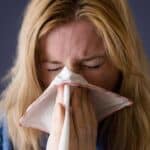
First, identify what’s triggering your allergies and avoid exposure to those triggers.
What triggers allergies in adults?
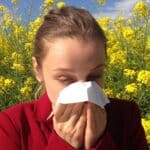
Causes of seasonal allergies in adults Seasonal allergies are caused by airborne pollens and other allergens that are present in the environment during certain times of the year.









